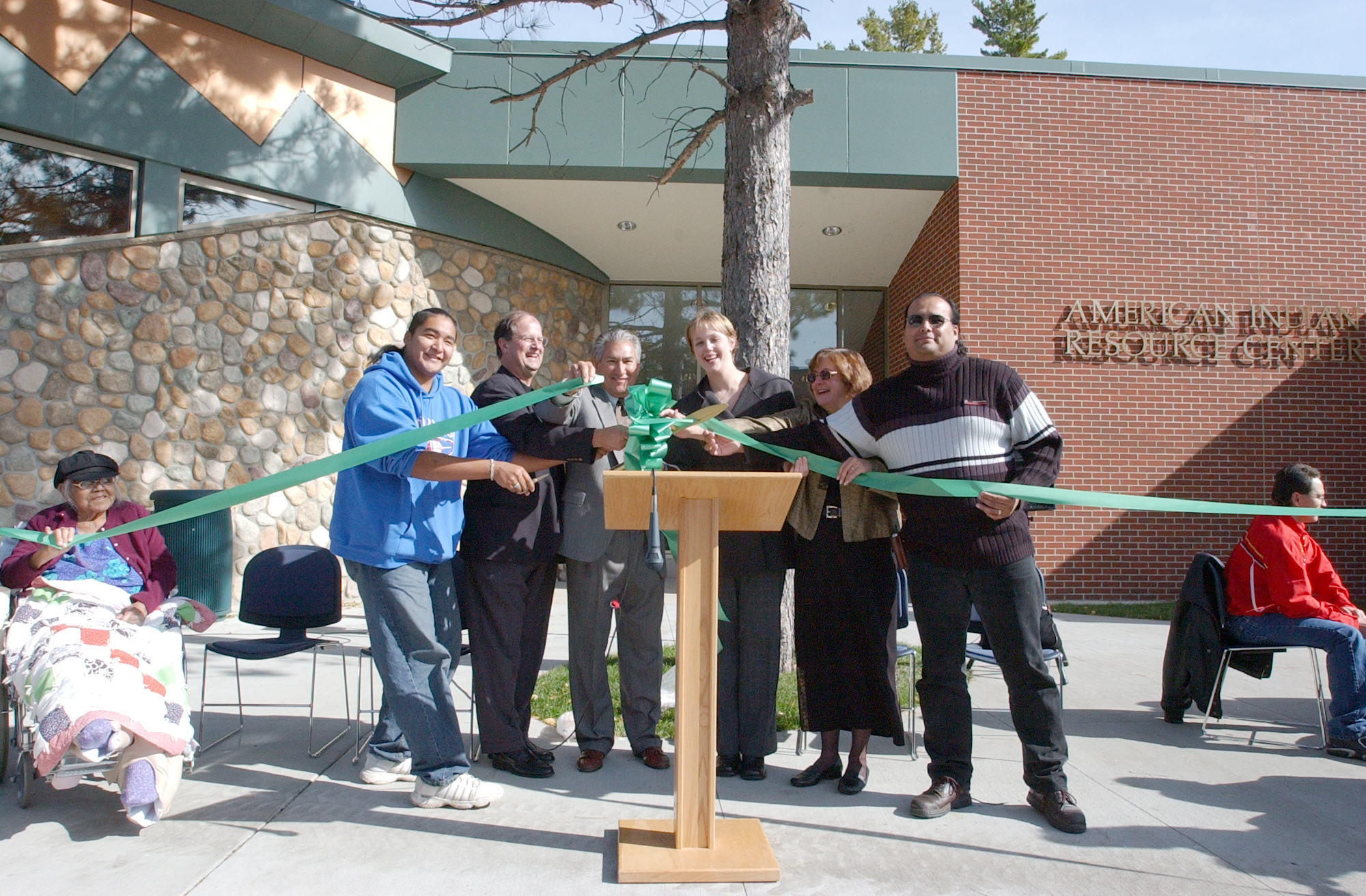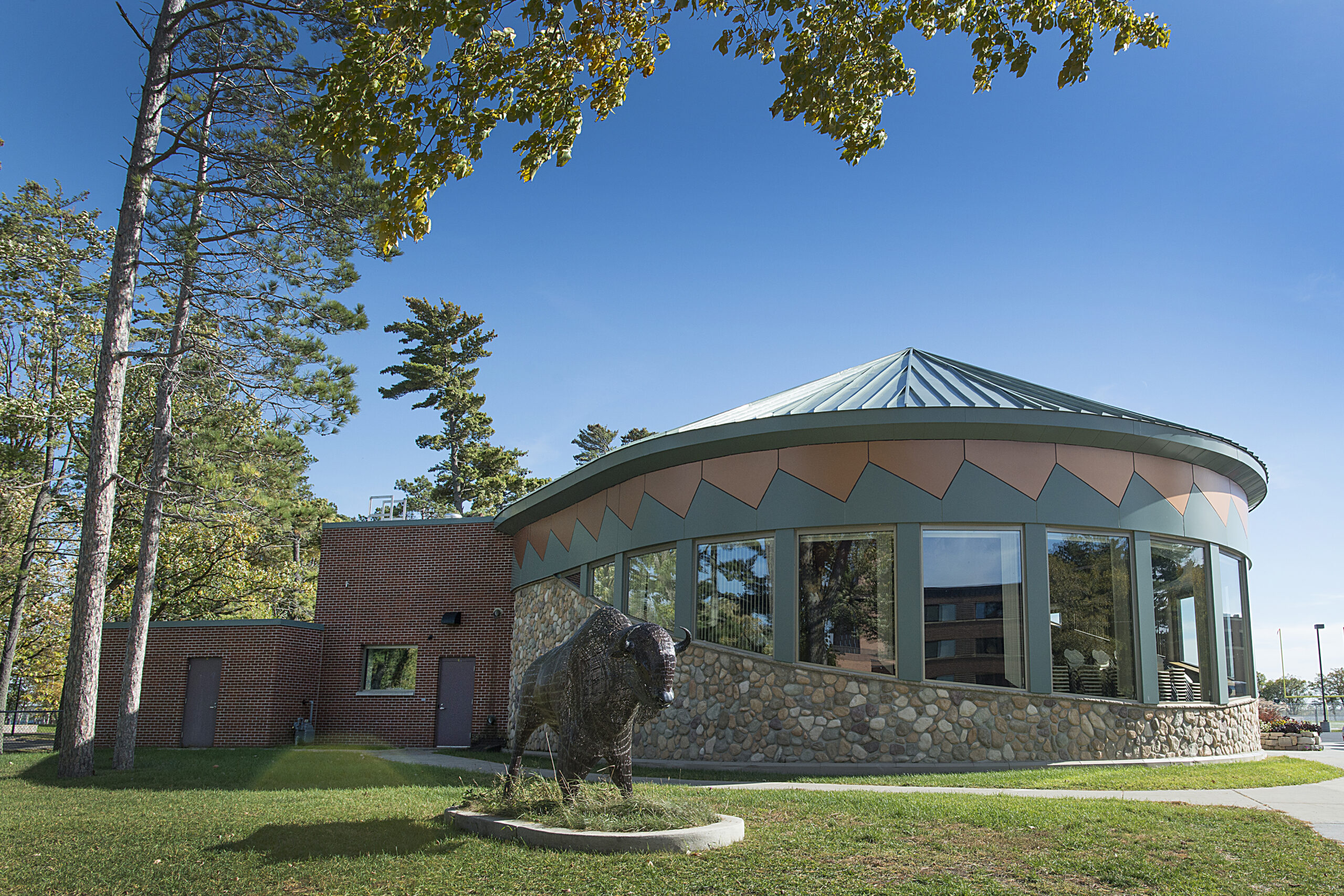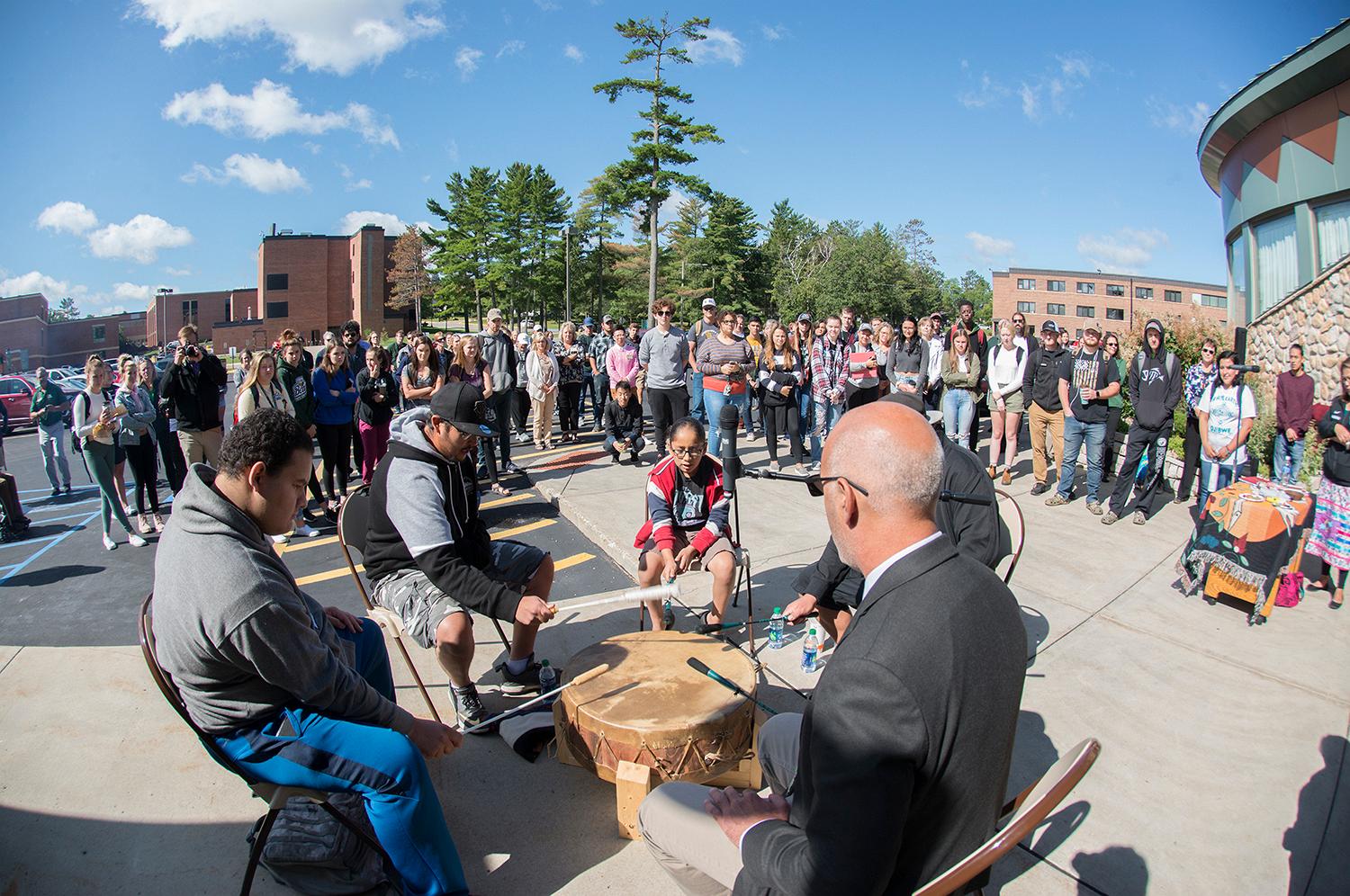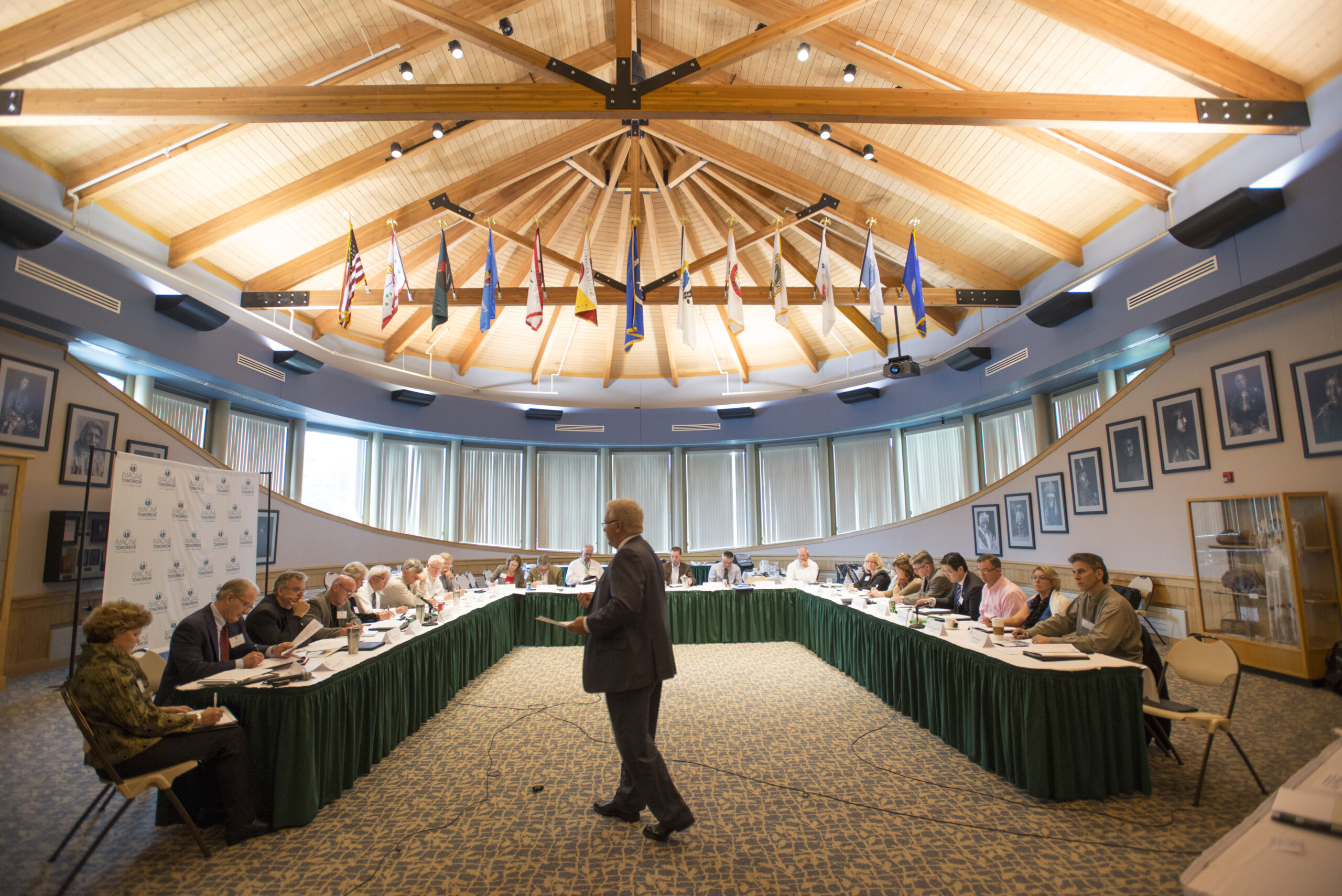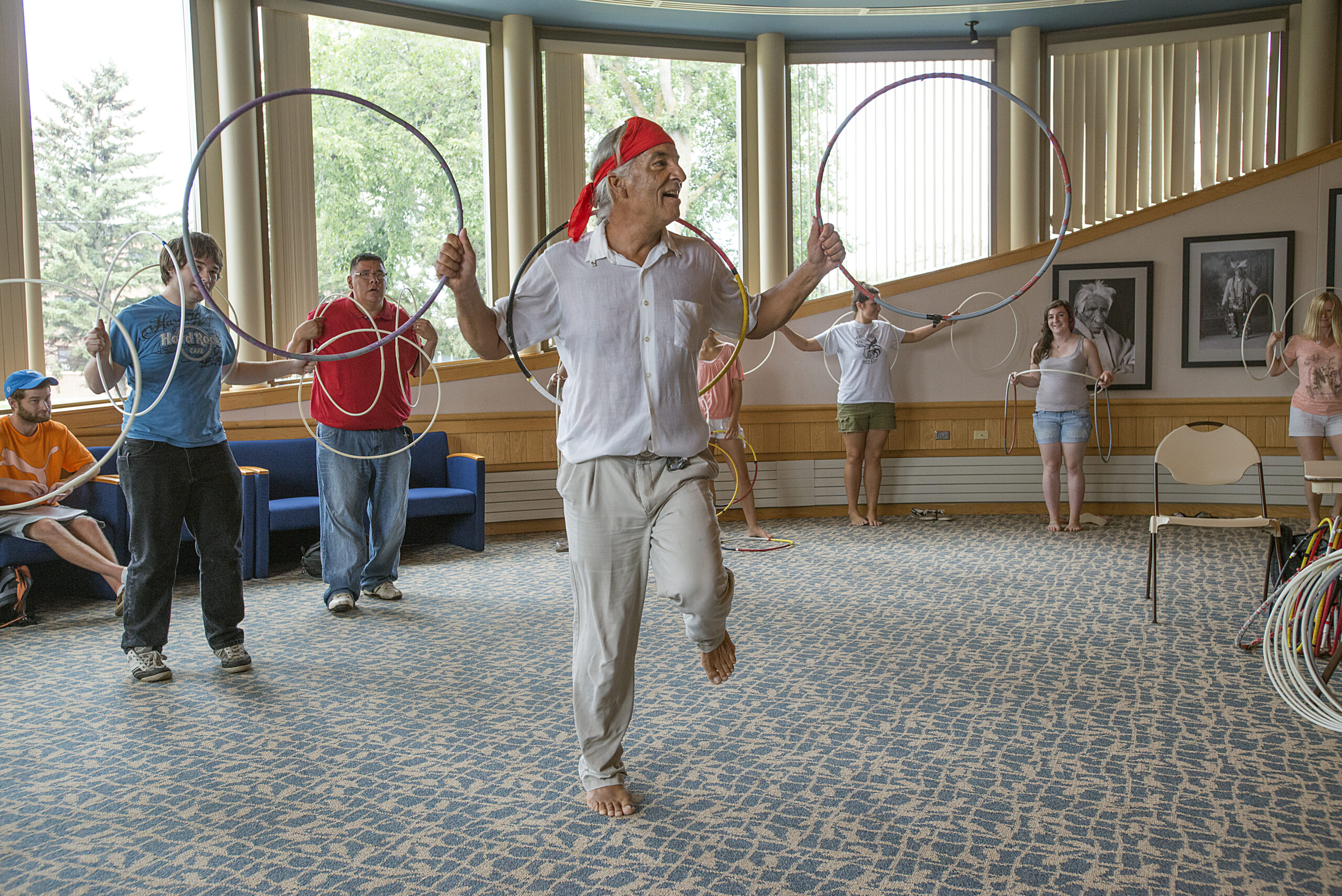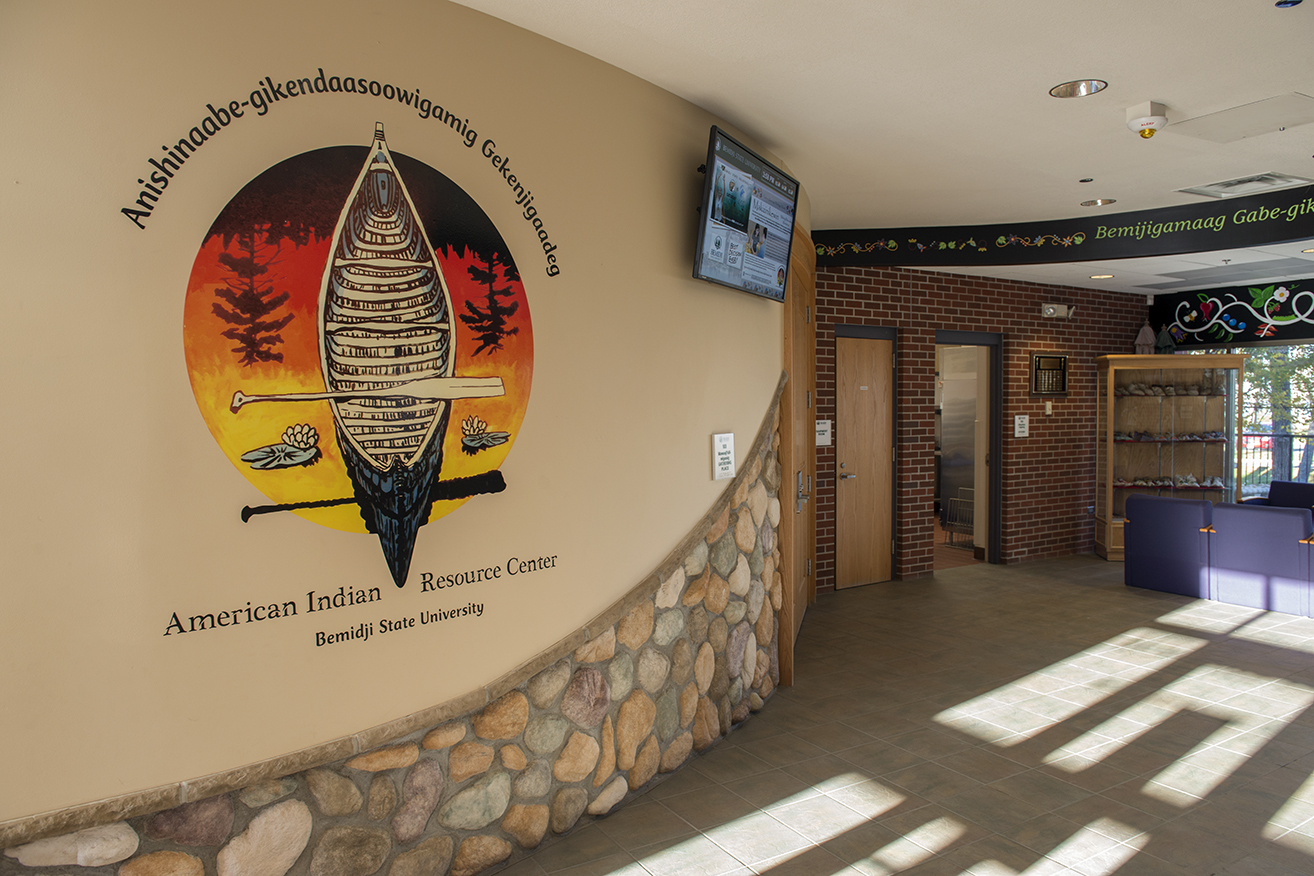
By The Bemidji Pioneer
Published 6:05 a.m. on July 28, 2019
The Anishinaabe Family Center sat on the edge of Bemidji State University’s campus for years.
It was a spot for American Indian students to meet, host fundraisers, and more – the next step of a years-long effort to carve out a space for American Indian students at the university, which developed one of Minnesota’s first Indigenous Studies programs (“Indian Studies” until a few years ago) in 1969 and a seminal Ojibwe language program about the same time.
The building was in disrepair by the 1980s, though, which presented leaders there with a choice: fix it up or think bigger.
They chose the latter, and a decades-long effort to build the school’s American Indian Resource Center began. Leaders such as Roger Aitken, Don Day and Lee Cook secured funding for the resource center in the early 2000s. Red Lake Nation, White Earth Nation and the Leech Lake Band of Ojibwe all chipped in several hundred thousand dollars between them, and the rest came from Minnesota lawmakers, who voted to borrow millions for the project. The center opened in 2003.
“It’s the middle of three reservations,” Cook said, referring to the three tribal nations within an hour’s drive of campus. “It made sense to have a center for Indians there.”
The social hurdles that make a student leave before they’ve earned a degree – poverty, being the first in their family to attend college, and so on – are more pronounced in the American Indian community, from which students can feel metaphorically thrown into the deep end of academia.
“A lot of them sank,” said Anton Treuer, a professor of Ojibwe at the university. “Some swam.”
The center, then, which routinely hosts social gatherings, guest speakers, and has mechanisms in place to help students with childcare and even relatively small emergencies like a minor car repair, works as a “home away from home” that can replicate the functions of a traditional Anishinaabe community.
“It’s also a place where American Indian students can come be themselves,” said Bill Blackwell, Jr., the center’s executive director. “You feel a lot more a part of the campus when you’ve got people with similar backgrounds that understand the dynamics of the culture.”
Written by Joe Bowen

KEEP READING:

